These larger urban areas are driving economic growth, but how these cities manage their growth will determine the future health, wealth and wellbeing of communities and environments in the Mekong region. At the same time, climate change is increasing the pressures facing these rapidly growing urban centres. Conventional approaches relying on large scale ‘grey’ infrastructure solutions alone cannot deliver the social, environmental and economic outcomes Mekong region communities desire at a cost that they can afford.
A new program funded by the Australian Government Department of Foreign Affairs and Trade is using nature-based solutions (NbS) – or ‘green’ infrastructure – to address the challenges of creating resilient urban centres. The program – Resilient Urban Centres and Surrounds (RUCAS) – will use urban water management as catalyst to promote urban climate resilience in 4 Mekong countries: Thailand, Viet Nam, Cambodia and Lao PDR. It builds on previous work on Nature-based Solutions in the Mekong region, and responds to the need to scale up the work done in Thailand and Viet Nam and to scale out the work to develop new projects in Cambodia and Lao PDR.
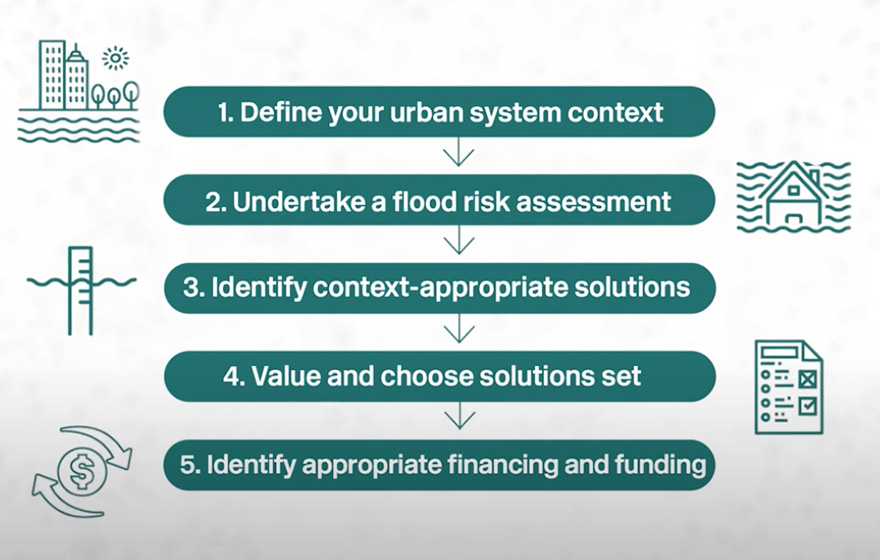
The program will support each partner country through 4 stages:
- Engage with Mekong country partners on priorities for action and align the opportunities created by hybrid NbS investments: The program will engage a wide range of public, private and academic stakeholders in each country to understand local issues, priorities and possibilities for their country and the Mekong region. Drawing on international experience, the program will highlight the potential contribution of investments in hybrid NbS infrastructure to more climate resilient urban development.
- Demonstrate local application and the economic case for action: The program will combine local partner insights and international expertise to build a case for action. It will show the relevance, design possibilities and economic case for climate resilient NbS in Mekong urban communities through local demonstration of concept studies.
- Support scaling and wider impact: Partners will be supported to scale up application in study locations and beyond by adapting international and local research and resources. Pilots may cover physical infrastructure as well as innovative community engagement and economic incentives.
- Leave a lasting legacy of local partnerships and capacity: Knowledge exchange and training will be an integral part of the program. I twill be designed and delivered in partnership with local public, private and academic institutions. Regional events and online hubs will support wider exchange.
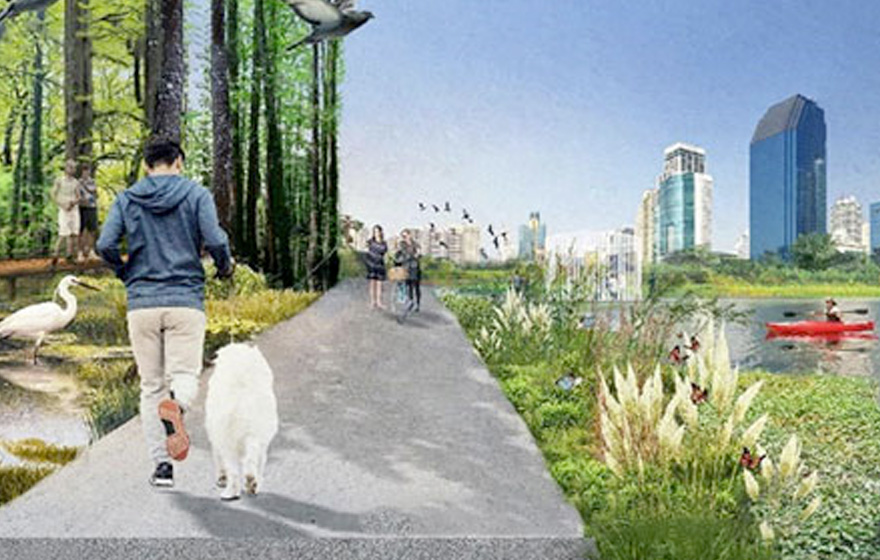
Central to the program will be 8 strategic case studies that demonstrate the local relevance and application of hybrid solutions that integrate nature-based solutions, non-structural and grey infrastructure.
At the end of the program:
- Mekong country partners will have improved technical capacity and capability, local demonstrations of concept, institutional buy-in and regional collaboration to support scaling hybrid NbS for more climate resilient development
- Mekong country partners will have a gender diverse cohort of technical champions and program reports, guidelines and recommendations that illustrate and support application of GEDSI (gender equality, disability and social inclusion) outcomes
- Australian private sector partners will have improved capacity and pathways to market for hybrid NbS
- Participating Australian and Mekong region universities will have enhanced collaboration and will have explored further research and education opportunities.
For more information, please contact Ben Furmage (ben.furmage@monash.edu).
Supporting integrated urban water management in Thailand’s Eastern Economic Corridor
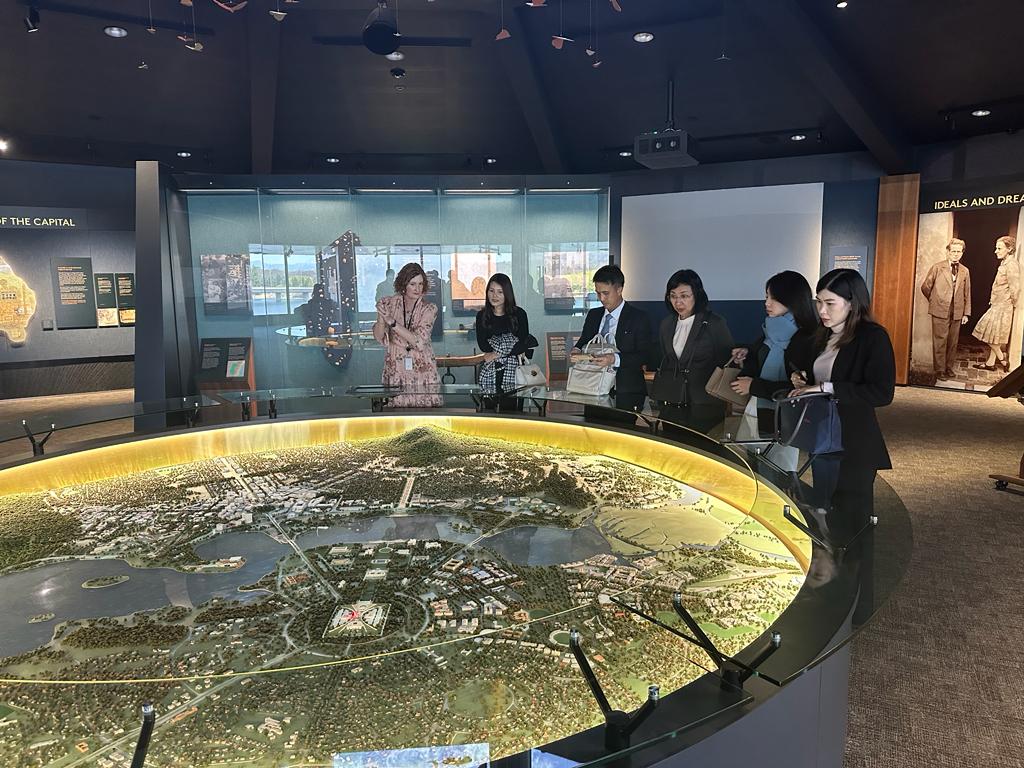
Get the run down on the RUCaS Regional Conference and Training, held over 4 days in November 2023
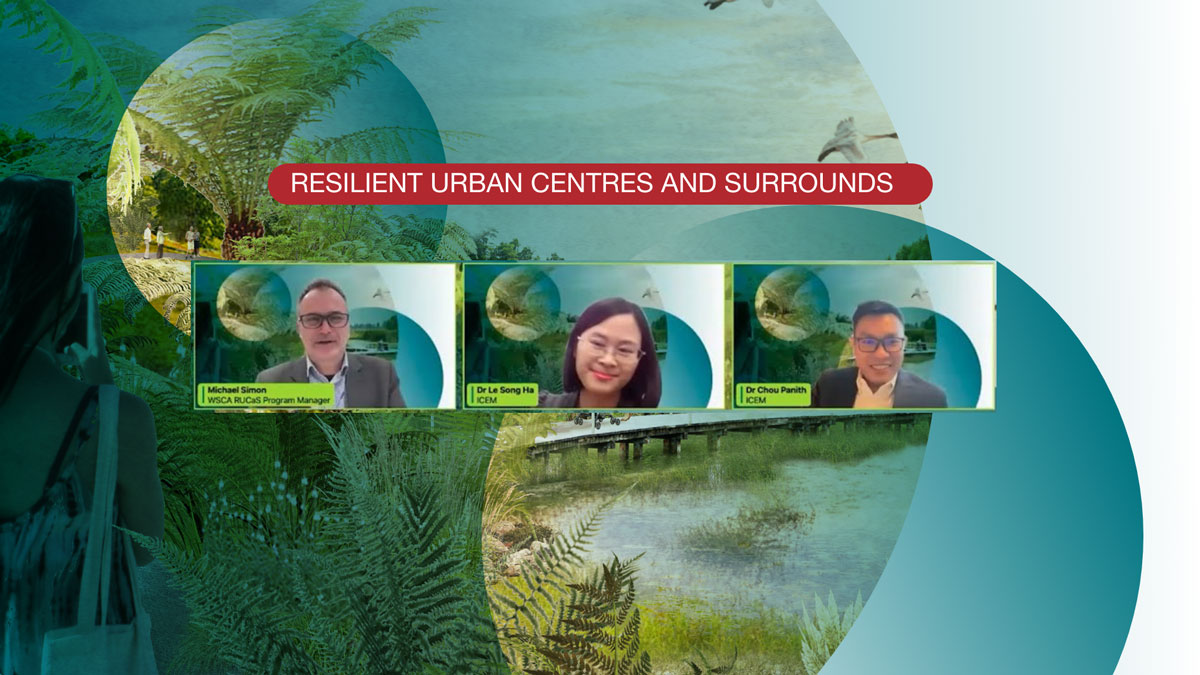
Improving climate change and water security outcomes for peoples with disabilities
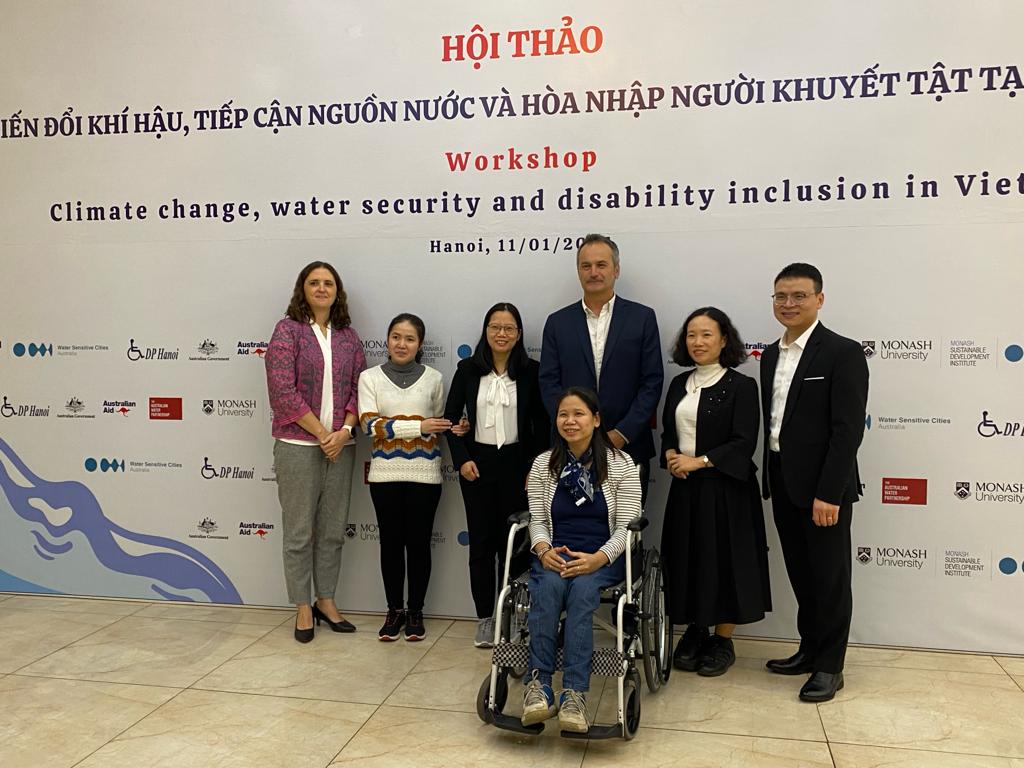
New faces at Water Sensitive Cities Australia

